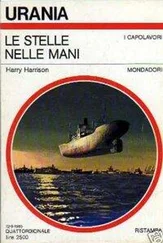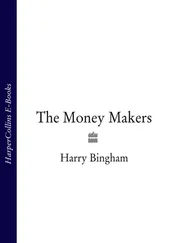Cameron looked back at the list, more intently now. But the names still revealed nothing to her. She dropped the list. ‘I can’t think of a reason.’
‘OK. Who does your paper hurt? It’s about – what? How to juice up rat blood?’
‘It doesn’t hurt anyone,’ she said, a little sharply. ‘My medicine is about helping people.’
‘Helping people, right. But what about your rats? What was in your article?’
Cameron shrugged, as though unimpressed by her own achievements. ‘I took a hundred and fifty rats, gave them five kinds of killer disease, then treated their immune systems. Reprogrammed them. Programmed them to be incredibly good at killing whatever virus it was I’d given them. I wrote up my results and sent ’em to the Journal .’
‘And what about the rats?’
‘They lived, of course. Otherwise my paper wouldn’t have been very interesting, would it?’ Bryn gripped Cameron’s arm, tightly, more than was polite. He delivered his next question with barely controlled intensity. ‘To cure your rats. Did you use drugs? Were their recoveries in any way drug-dependent?’
‘Oh, who cares?’
Cameron sought to free her arm, but Bryn tightened his grip, as his nerves danced with urgency. ‘Please, Cameron. It’s critical that you tell me.’
She quit struggling. ‘Some of the rats benefited from very small doses of immune stimulant pharmaceuticals. In real life, not an experiment, I might have wanted some further drug support. But in general, no. The rats didn’t get better because of any drugs.’
Bryn’s flicker of excitement burst into flame, seizing hold of his entire body. He leaped back as though on fire. ‘Jesus Christ! Jesus, Cameron, I thought you said your paper didn’t hurt anyone. There are billions – no forget that – there are tens, hundreds of billions of dollars invested in drug technologies which you could be putting at threat. It’s not if, frankly, it’s who … Let me think. Jesus.’ He took the list of names again, thrusting them in front of the scientist, inches from her face. ‘Do you recognise any of these names? Is there a common link? Any company, or organisation?’
Cameron looked at the names. ‘They’re all OK. This guy, Professor Durer, he’s quite good. Had a real interest in my work. Rucci … The name rings a bell, but … Now, Freward. He’s a grade-A creep, but an OK scientist … The others, hell, the others, who cares?’ Her insightful analysis stumbled to a close.
Bryn drummed briefly on the table. Then, pulling out his phone, he began to dial.
First London, where it was two o’clock in the morning. He called three of his junior analysts, two of whom were asleep in bed, one of whom was at work, finishing up a spreadsheet for one of Bryn’s other projects. Bryn began to bark instructions, getting the two sleepy analysts into work as soon as possible, pulling the third off his existing project for the time being. He thought briefly, then, for the sake of completeness, he called a couple of associates in New York and set them the exact same task, with the same urgent deadline as he’d given the others. What one group missed, the other might find, and vice versa. Before he was done, he interrupted himself briefly. ‘Fax?’ he asked Cameron. ‘E-mail?’ Wordlessly, she pointed to her filofax which lay on the desk. Bryn flipped to the contact information, and gave it to the associates on the other end of the line. He switched off his phone and tossed it down.
‘There we go. We’ll have some answers pretty soon.’
‘Answers to what? Except whether you’re a nice guy to work for.’
Bryn allowed himself a tiny smile. ‘We pay ’em enough.’
‘Can I ask you something?’
Bryn looked up in surprise. ‘Of course.’
‘Who are you? How come you know about the pharma industry? More to the point, what the hell made you come see me tonight?’
With a jolt, Bryn realised that Cameron knew nothing about him. She’d shown no personal curiosity in him the night they first met, and this evening the normal social exchanges had been obliterated by the steamroller of Cameron’s distress. ‘I’m an investment banker,’ he said, briefly explaining who he was and how come he was in Boston.
‘That doesn’t explain how come you’re in my apartment.’
He shrugged. Why was he here? Because his wife had left him and he thought that some weird Dr Dynamite scientist type was going to make him feel all warm and cuddly again? He shook the question away, and crossed to Cameron. ‘We should have some data coming in by now.’
He booted up Cameron’s PC and went into her e-mail. Before long, e-mails began to fly in from London and New York. ‘Data dumps,’ he said. ‘Everything you ever wanted to know about your six reviewers, plus the Journal’ s editor. Everything which has ever appeared in print, anywhere in the world. Pharma company appointments, educational bulletins, research reports, internet stuff, you name it.’
‘You have systems which do that?’
‘Not systems, people. The information is out there, it’s finding it which is hard. Now, let’s see …’
For two and a half hours he worked, expertly skimming the mass of information flooding in, printing, marking and putting to one side anything he thought possibly relevant. Before long, seven piles mounted up: Durer, Regan, Rucci, Czarnowski, Booth, and Freward – the six reviewers – plus Goldbach, the editor.
At length, he took a break.
‘OK,’ he said. ‘I think I’m close. Of the six reviewers, I can connect four to one company, Corinth Laboratories. Durer is the one who connects tightest. His research lab has a major multi-year contract with Corinth. I doubt if Durer would stay in business if Corinth moved away. Regan and Czarnowski have both done paid experimental work for the group, plus Regan – no, Czarnowski – has done paid lectures, expert witness work with the FDA, that kind of thing. Then Booth is working to get a hospital extension funded. His co-chairman on the committee is an ex-CEO of Corinth. It’s not a strong connection, but if they’re hoping for funds, you never know. That leaves Freward and Rucci. I can’t find anything. Not yet. But there’s more stuff coming.’
He carried on speaking, but Cameron had turned to stone.
‘Rucci,’ she said. ‘I’ve just remembered where I heard the name.’ She walked to a shelf and pulled down an old edition of an industry magazine, Pharmaceutical People . She flicked through the pages and found the item she was looking for: a sickly-sweet mother-daughter feature, adorned with a cheesy photo. ‘The mom, Paula Rucci, was my reviewer. Her daughter, Gabriella, is Vice President in Corinth’s Veterinarian Division.’
‘Ha!’ barked Bryn, flying back to his sheaves of paper. He flicked quickly through his stacks and came away with a sheet. ‘Gabriella Rucci has recently been promoted to Executive VP. How nice. Her mum may be clean, but her daughter certainly isn’t. And if dear little Gabby comes home one day and tells her mum all kinds of crap about you, who’s she going to trust? That just leaves Freward.’
Cameron shook her head. ‘Uh-uh. Freward’s the worst.’ From a pile on her desk, she pulled a photocopied research piece, Quantificational errors in omega pathway modelling of digestive enzymes . Among the list of authors, Freward’s name had been circled with a handwritten comment next to it, ‘Pillock!’ Bryn looked blankly at the page.
‘Freward’s a good scientist,’ said Cameron, ‘but he devotes his life to these kind of knocking pieces, always trying to shoot good work down. He’s a director of – what’s the name again? – the Katz-Jacoby Research Foundation and –’
Читать дальше












